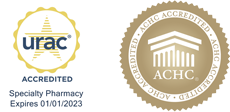Hello, this is Finny Joseph, your Pharmacist at Josefs Pharmacy. Did you know that an estimated 30 million people in the US have been diagnosed with diabetes; many are our family, friends and neighbors. That’s about 1 out of every 11 people or over 9% of the population. What you may not know is that all people with diabetes have a higher risk for eye disease. 1 out of 4 people don’t even know they have diabetes. We are shining a light on this lifetime disease by informing you about the symptoms and warning signs of diabetes.
The warning signs for diabetes are often missed because they can be mild. Some don’t discover the disease until it has caused long-term damage. Common symptoms and warning signs of diabetes include:
- Frequent urination
- Increased thirst
- Increased hunger despite regular meals
- Extreme fatigue or tiredness
- Blurry vision
- Headaches
- Cuts and/or bruises that are slow to heal
- Weight loss despite regular meals
Early detection and treatment is key. Research shows you can lower your risk 58% by losing 7% of your body weight and exercising moderately (e.g. a brisk walk) for 30 minutes a day, five days a week.
If you have questions or want a free diabetes consultation, please call us to schedule an appointment or stop by and see us. We can inform you about the risk, warning signs and way to prevent the onset of this disease. We look forward to helping you.

 t two weeks after vaccination for antibodies to develop in the body and provide protection against the flu.
t two weeks after vaccination for antibodies to develop in the body and provide protection against the flu.